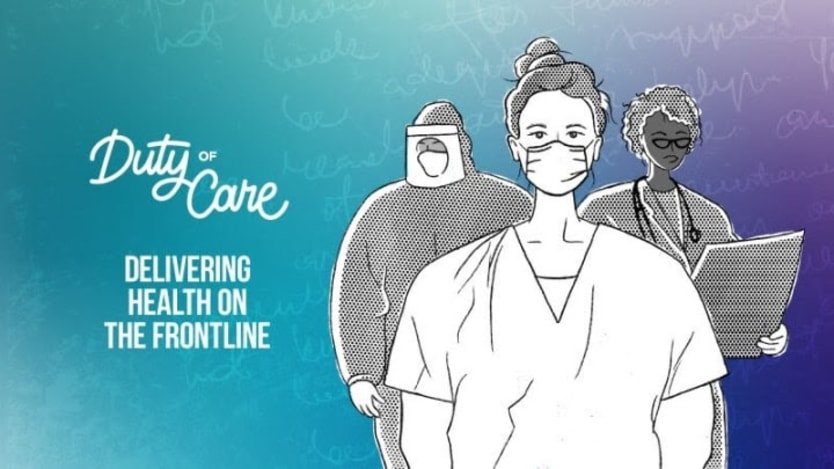
Outside the Liberian Ministry of Health one sunny morning this past February, people were once again washing their hands at sanitizing containers and refraining from shaking hands and hugging — a sobering reminder of the 2014-16 Ebola epidemic. But this time, for COVID-19, we were more prepared.
The Ministry of Health quickly coordinated with partners to implement social distancing, create and disseminate health education materials, and draft curriculum to train health workers and facility staff across the country. This includes supporting health workers to safely prevent, detect, and respond to COVID-19, which had infected more than 266 Liberians and killed 26 by May 25.
They may seem like superheroes, but doctors, nurses, midwives, and community health workers need support too. This content series takes a look at how health systems can function better so that health care workers are supported, protected, and empowered.
Community health workers played a vital role during the Ebola crisis. They have the opportunity to do so again by providing information on prevention, including proper hand-washing; promoting social distancing; safely identifying, supporting and referring those suspected of being infected; and encouraging patients to seek care early.
But the less visible role that community health workers will play during the response may have the largest impact: continuing the delivery of primary health care services in communities.
Maintaining essential health services is just as important as battling COVID-19
A near collapse in these services led to the deaths of over 10,000 people from HIV, tuberculosis, and malaria across Liberia, Guinea, and Sierra Leone during the Ebola epidemic of 2013-2016. This is in addition to the 11,300 lives lost due to the virus. Childhood immunizations fell and, in some areas, the number of women giving birth in health facilities dropped by more than 80%. If COVID-19 causes similar disruptions to care, almost 1.2 million children and 57,000 mothers could die over just the next six months worldwide; this would represent a 45% increase over current child mortality levels.
Zack Flahnman, a registered nurse and supervisor in Liberia’s National Community Health Assistant Program, told us that health promotion and disease prevention are first initiated at the community level. If such primary health care is hindered during the COVID-19 pandemic, health workers anticipate that there will be high morbidity and mortality rate in Liberia and beyond.
Because of community health workers’ impact during the Ebola epidemic, the Ministry of Health and a coalition of partners launched the National Community Health Assistant Program in 2016 to put a professionalized community health worker in every rural community across Liberia.
Now, all community health workers in the program are trained; equipped with essential medicines and smartphones; connected to a clinical supervisor at the closest health facility; and most importantly, paid for the life-saving services they provide. The program has a strong track record of disease surveillance and expanding routine health care delivery.
Protect community health workers so they can save more lives
As of April 30, 2020, Liberia’s community health workers had conducted 3.3 million home visits and screened and treated over 1 million cases of malaria, pneumonia, malnutrition, and diarrhea in children under 5. They have increased the rate of children receiving medical care by over 40%.
However, health workers cannot continue to carry out their life-saving work without personal protective equipment. While the global shortage of this equipment is affecting health care providers worldwide, community health workers are often the last cadre to receive the gowns, gloves, masks, and shields they need to stay safe; or they are not included in national planning and procurement for the equipment. This means that they are forced to decide between interrupting care or putting themselves and their families at risk.
Health workers in Liberia currently are implementing “no-touch” protocols and limiting some services to stay safe, but this is not enough. Nearly 1 out of 10 of Liberia’s health workers lost their lives to Ebola, which is a grim reminder of the dangers when health workers are forced to choose between staying safe and continuing to serve their neighbors.
As the Ebola outbreak taught us, we are only as strong as our weakest link. This means prioritizing community and frontline health workers in national COVID-19 strategies, and ensuring all patients are within reach of a health worker. Now is the time not only to fight COVID-19 but to invest in resilient primary health systems that will protect every last one of us during this pandemic and beyond.
Visit the Duty of Care series for more coverage on how health systems can function better so that health care workers are supported and protected. You can join the conversation using the hashtag #DutyOfCare.






